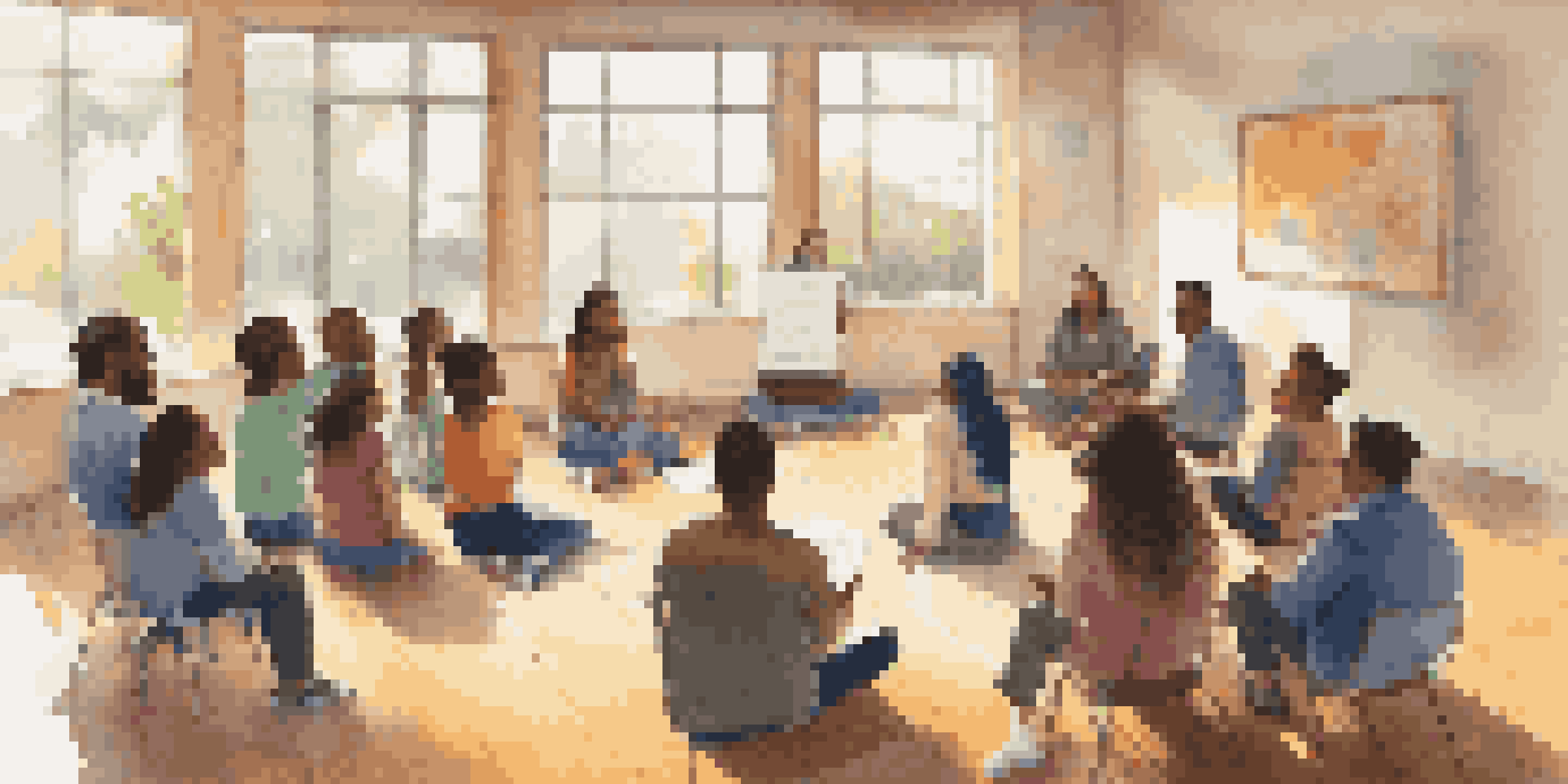The Role of Community Dialogues in Educational Development

Understanding Community Dialogues in Education
Community dialogues are structured conversations aimed at fostering understanding and collaboration among various stakeholders in education. They create a platform for parents, teachers, students, and community members to share their perspectives and insights. By encouraging open communication, these dialogues help identify common goals and challenges within the educational system.
Building Trust and Relationships
One of the primary benefits of community dialogues is the trust they build among participants. When individuals feel heard and respected, they are more likely to engage and contribute positively to discussions. This trust creates a supportive environment that enhances collaboration and ultimately benefits students' learning experiences.
Building Trust in Education
Community dialogues foster trust among participants, encouraging respectful engagement that enhances collaboration.
Empowering Voices: Parents and Guardians
Community dialogues empower parents and guardians to voice their concerns and ideas about their children's education. When they actively participate, it fosters a sense of ownership and accountability in the educational process. This involvement can lead to more tailored educational strategies that reflect the needs of the community.
Engaging Students in the Conversation
Including students in community dialogues is crucial for effective educational development. Their perspectives can provide valuable insights into the learning environment and curriculum. By giving students a voice, we encourage them to take an active role in shaping their education, promoting a culture of responsibility and leadership.
Empowering Community Voices
These dialogues empower parents and students alike, allowing them to express concerns and contribute to educational strategies.
Identifying Local Educational Challenges
Community dialogues serve as a valuable tool for identifying specific educational challenges faced by local communities. Participants can share their unique experiences, leading to a deeper understanding of issues such as resource allocation, school facilities, and teaching methods. This collective knowledge helps develop targeted solutions that address the root causes of these challenges.
Fostering Collaborative Solutions
Once challenges are identified, community dialogues can facilitate collaborative problem-solving. By bringing together diverse perspectives, participants can brainstorm innovative solutions that might not have emerged in isolation. This collaborative approach encourages creative thinking and builds a sense of community ownership over educational outcomes.
Identifying Local Challenges
Community dialogues help uncover specific educational challenges, leading to targeted solutions that address the needs of the community.
Enhancing Educational Policies Through Dialogue
Community dialogues can influence educational policies by providing policymakers with firsthand insights from the community. When education leaders listen to the voices of those directly affected by their decisions, they can create more effective policies that truly reflect the needs of students and families. This alignment between policy and community needs is vital for sustainable educational improvement.
The Future of Community Dialogues in Education
As we look to the future, the role of community dialogues in education is likely to grow even more significant. With the increasing emphasis on inclusive and participatory approaches, these dialogues can help bridge gaps between various stakeholders. By continuing to foster open communication and collaboration, we can ensure that educational development remains a community-driven effort.